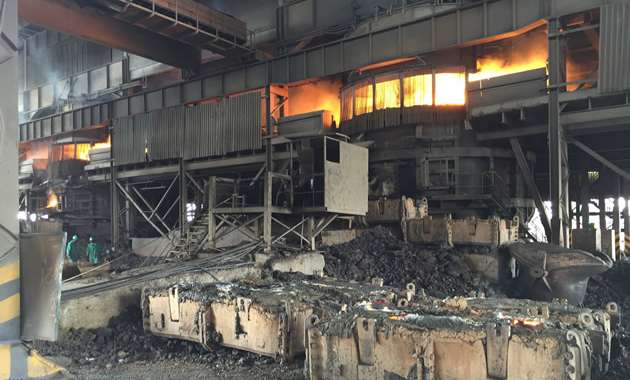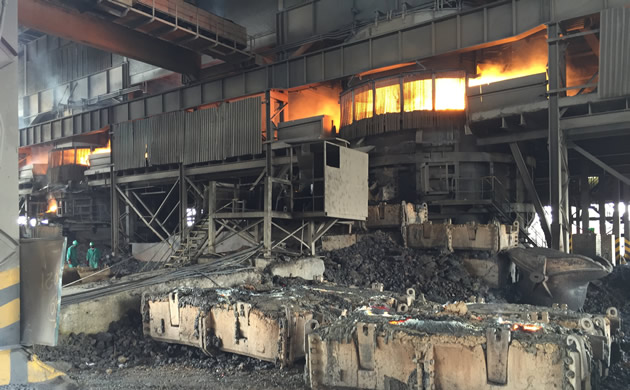Zimasco shuts down Kwekwe refinery

 Martin Kadzere and Tinashe Makichi
Martin Kadzere and Tinashe Makichi
ZIMASCO, a unit of China’s Sinosteel Corporation has completely stopped operations at its ferrochrome refinery in Kwekwe after switching off furnace number five and six.
These were the only running smelters as the company had already switched off other furnaces due to low cash flows resulting from subdued international ferrochrome prices.
Despite shutting down the furnaces, Zimasco, the country’s largest ferrochrome producer in terms of capacity, said tributor and contractor mining operations will not be stopped as long as tributors and contractors are able to secure third party buyers.
Chrome miners under tribute agreements were not allowed to sell to buyers of their choice. Many small-scale chrome producers are on the tributes of either Zimasco or ZimAlloys.
“This action brought to a halt the smelting operations of the company as these were the only two furnaces running,” Zimasco general manager-mining Mr Namatai Mapfumo said.
He said the decline of global prices has seen the company failing to meet operational requirements.
Furthermore, the weak market and regional drought have seen some of the company’s major customers curtailing standing orders, he added.
“Unfortunately, it has now become necessary for the organisation to take certain measures to arrest this untenable situation. The company views the drastic measures as unavoidable given the current circumstances,” said Mr Mapfumo.
Zimasco operates a ferrochrome refinery in Kwekwe as well as mines along the Great Dyke range stretching from Lalapanzi and Shurugwi in the south to Mutorashanga in the north.
The company has the capacity to produce 180 000 tonnes of high-carbon ferrochrome a year, or 1,2 percent of global production, according to its website.
Government lifted the ban on chrome ore exports in July this year to enhance the viability of miners and improve the liquidity into the economy.
Shipments resumed last month, for the first time since 2011 when Government imposed the ban on raw chrome exports.
The ban was meant to encourage beneficiation of the mineral. However, the suspension had negative impact on producers, particularly small-scale miners, some of whom were forced to shut down due to viability problems.
Small-scale miners could not sell their produce due to low smelting capacity in the country, leaving them with stocks of chrome ore and no alternative source of revenue.
Mr Mapfumo said details under which sales to third parties will be conducted will be communicated.
Zimbabwe Miners Federation president Mr Wellington Takavarasha said ZMF would look for buyers willing to capacitate production by small-scale chrome miners and these would be given preference.











Comments